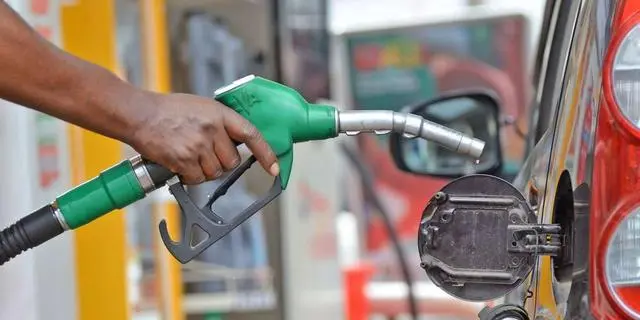Economic analysts are raising concerns that inflation in Nigeria could climb higher, spurred by rising fuel prices and recent flooding that has disrupted agriculture and infrastructure across key regions. Both factors are expected to contribute to increased costs in goods and services, adding pressure to an already challenging economic environment.
Fuel Prices Driving Costs
The recent surge in fuel prices is a significant factor, with transport costs rising sharply as a result. As fuel is essential not only for transportation but also for power generation in many Nigerian businesses, the increase affects almost every sector. Higher fuel prices mean that companies are likely to pass these additional costs onto consumers, raising the price of goods and services.

Petrol, diesel, and other fuel prices have been volatile, partly due to the government’s subsidy removal and external market factors, which have intensified supply and demand pressures. With Nigeria heavily reliant on imports to meet its fuel needs, fluctuations in global oil prices directly impact domestic fuel costs. This dependency makes the economy vulnerable to inflationary pressures whenever there’s a surge in international prices or disruptions in the supply chain.
“Transportation and logistics are heavily impacted by fuel costs,” explains economist Dr. Tunde Akinola. “When fuel prices rise, it affects the cost of transporting goods, which ultimately trickles down to consumers, driving up inflation across multiple sectors.”
### Flooding Disrupts Agriculture and Food Supply
Meanwhile, flooding has devastated agricultural regions, disrupting the production of staple foods like rice, yams, and maize, and putting further pressure on food prices. According to recent reports, several states have experienced significant crop losses, which could lead to food shortages. The Nigerian Meteorological Agency and the National Emergency Management Agency have both reported widespread damage due to seasonal rains, affecting farmlands and communities in states such as Kebbi, Niger, and Adamawa.
With food accounting for a large portion of household spending, especially in lower-income groups, higher food prices are expected to be a primary driver of inflation. Reduced supply due to crop losses is likely to exacerbate the existing challenges in meeting local demand, potentially leading to further increases in food prices in the coming months.
“Flooding poses a severe threat to food security, and the resulting scarcity can drive food prices up rapidly,” noted agricultural economist Uche Adigwe. “As the cost of food increases, it directly contributes to inflation, impacting household spending and economic stability.”
### Inflationary Pressures on the Broader Economy
Analysts warn that the combined impact of rising fuel prices and flooding-induced food shortages could push inflation further above current levels, compounding the pressure on consumers and businesses. Official statistics indicate that inflation remains elevated, with the consumer price index (CPI) trending upward in recent months due to various economic factors.
The effects of these inflationary pressures are likely to be particularly harsh on low- and middle-income households, who spend a larger share of their income on essential items like food and transportation. For these households, even modest increases in prices can significantly reduce their purchasing power, leading to a decrease in disposable income and affecting their quality of life.
Additionally, businesses, especially small and medium-sized enterprises (SMEs), may face higher operating costs, which could limit their ability to expand or invest in new projects. This environment creates a potential risk of slowing down economic growth as businesses and consumers grapple with rising expenses.
### Policy Options and Outlook
In response, analysts are urging the government to take action to mitigate these inflationary pressures. Some recommend temporarily increasing social welfare programs or subsidies on essential goods to help alleviate the burden on vulnerable populations. Others advocate for more strategic investments in agricultural resilience and infrastructure to reduce the impact of seasonal flooding on the food supply.
On the monetary front, the Central Bank of Nigeria (CBN) may also face pressure to adjust interest rates or implement other measures aimed at stabilizing inflation. However, with high inflation rates already challenging the economy, further interest rate hikes could have mixed effects, potentially constraining business activity and consumer spending.
“In the short term, the government may need to introduce policies to ease the immediate impact of inflation on households,” said Dr. Akinola. “In the long term, investing in infrastructure and exploring ways to make Nigeria more self-sufficient in food and energy could provide greater economic stability.”
### Conclusion
As Nigeria grapples with the dual challenges of rising fuel prices and climate-related disruptions, inflation may continue to climb, presenting significant challenges for both households and businesses. With analysts predicting further price hikes in food and transportation, many will be watching closely to see how the government and central bank respond to these pressures.
Support InfoStride News' Credible Journalism: Only credible journalism can guarantee a fair, accountable and transparent society, including democracy and government. It involves a lot of efforts and money. We need your support. Click here to Donate
